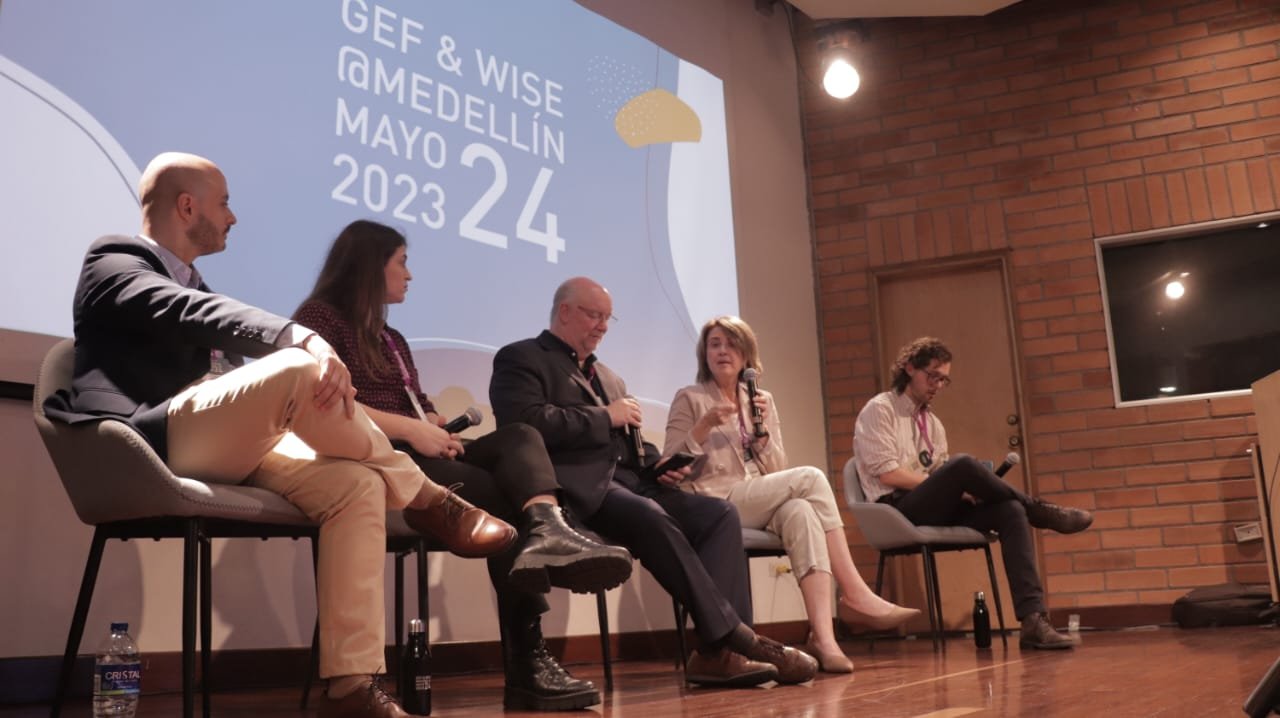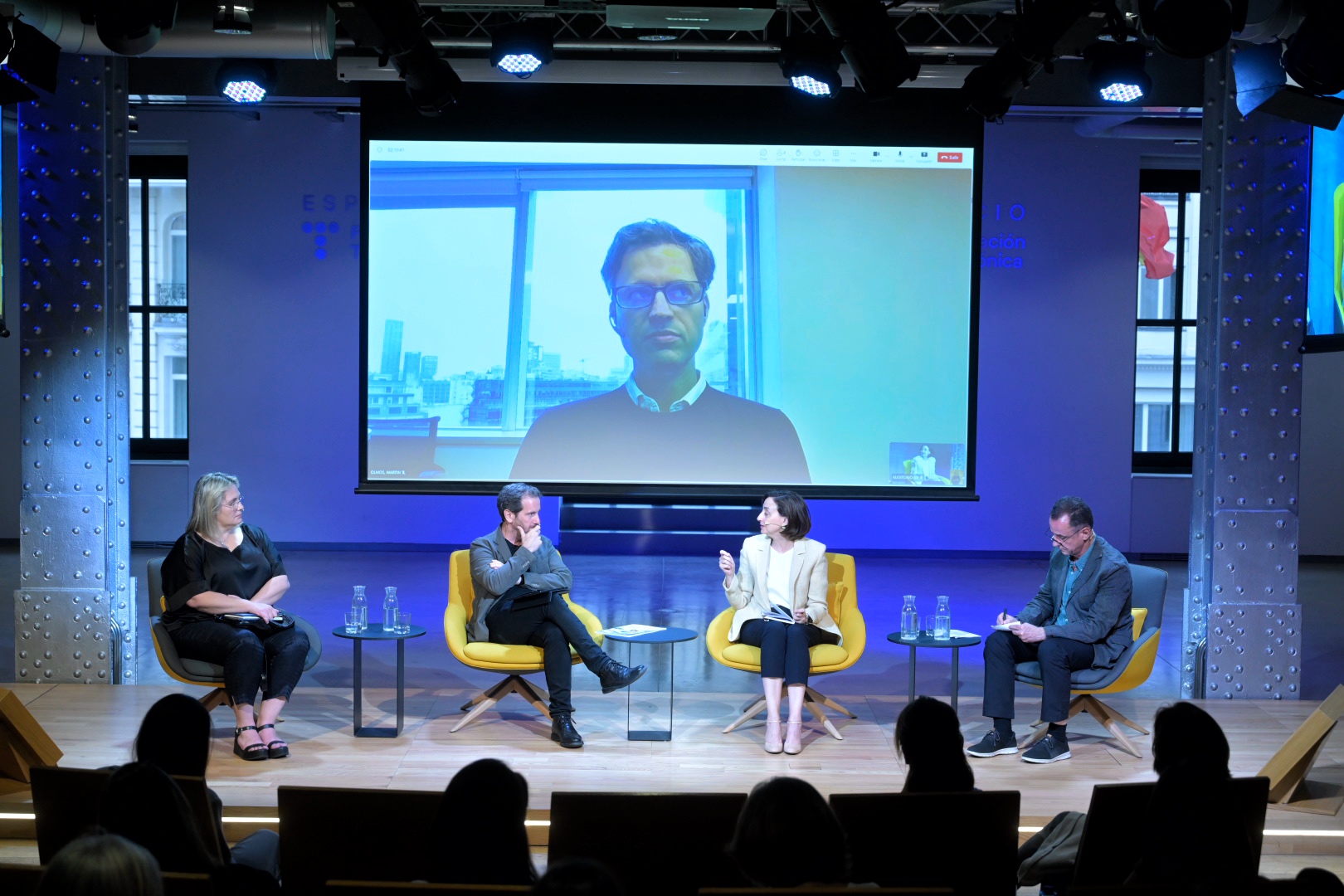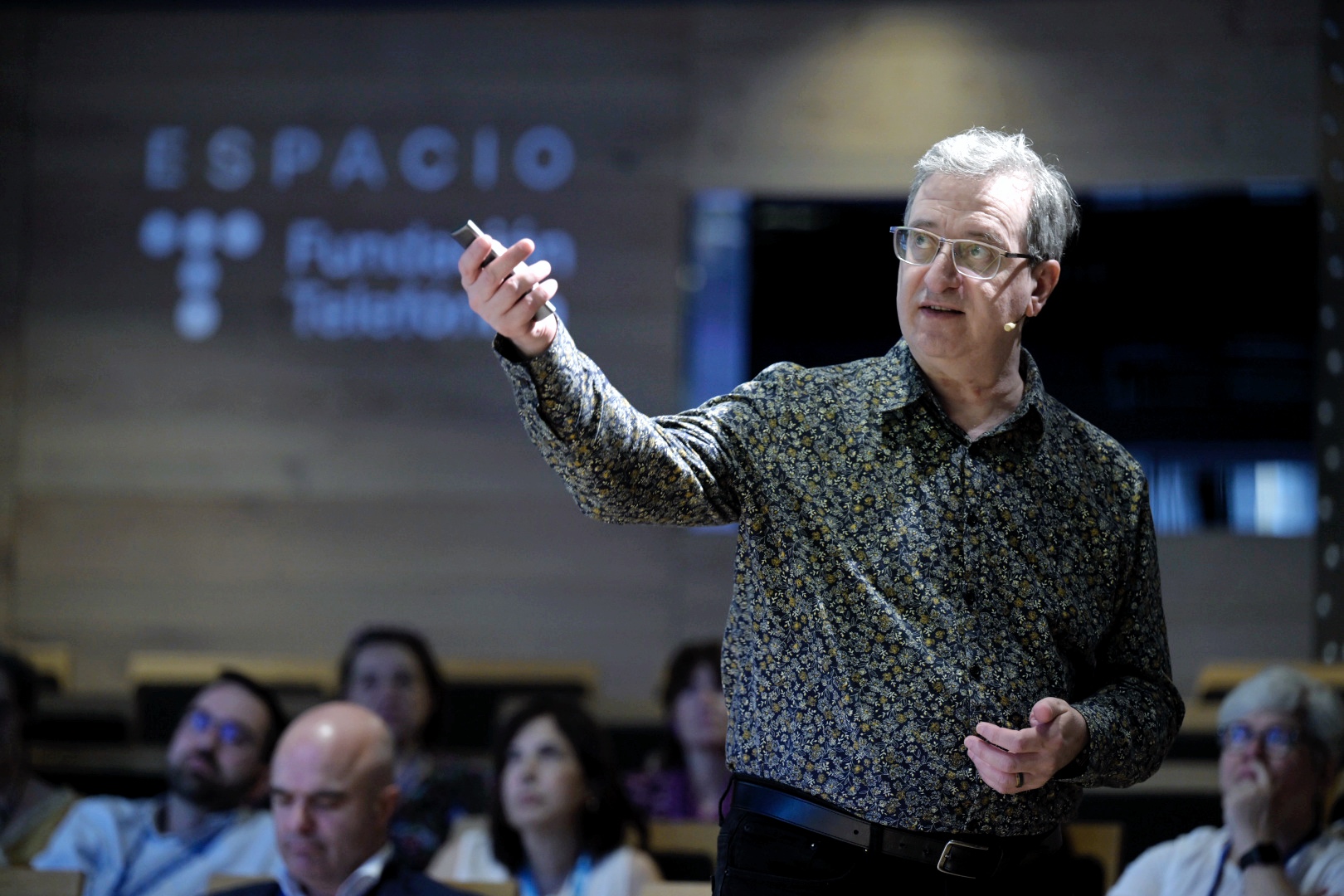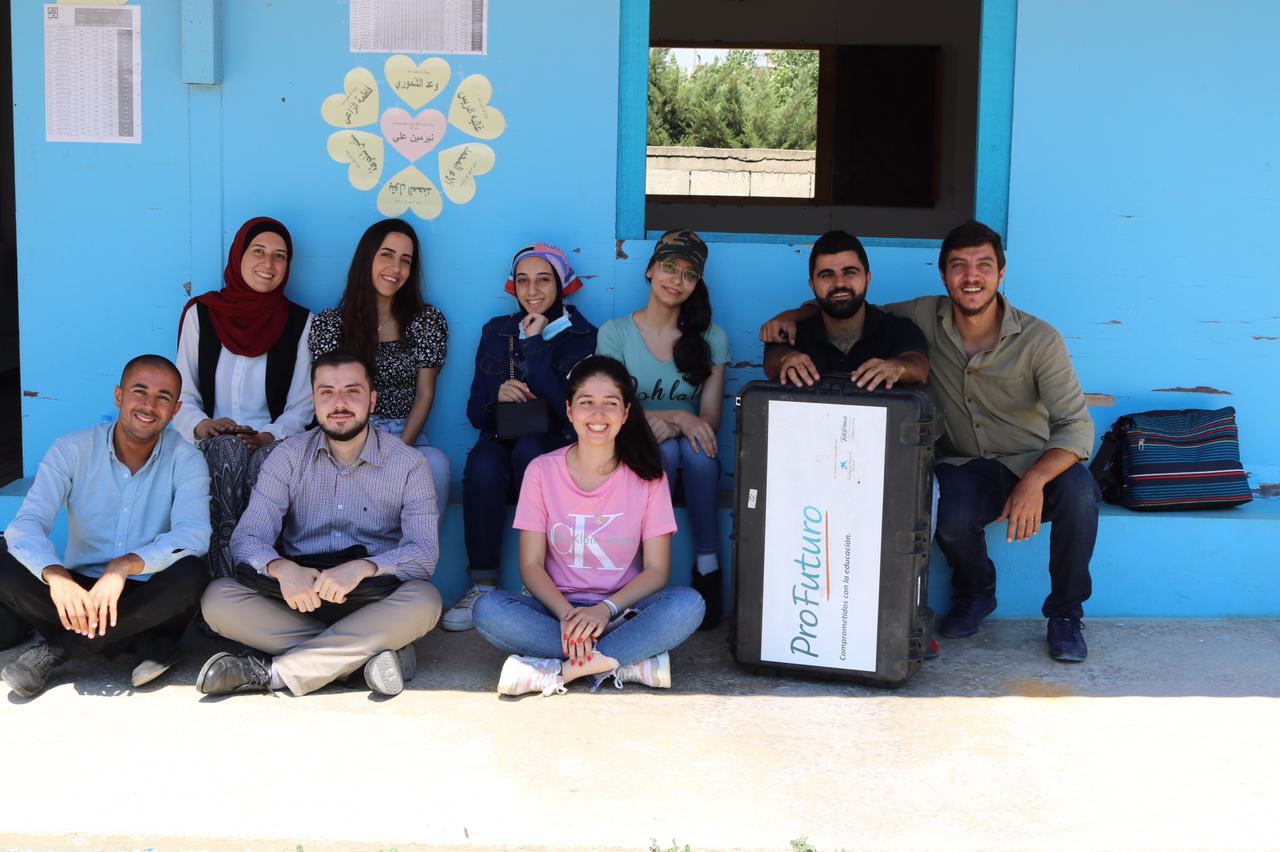ProFuturo has been present at the GEF & WISE Forum @ Medellin which is currently being held in Colombia from 24 to 26 May, and whose theme this year is: “Beyond Education. Engaging a whole society in learning”
Our Managing Director Magdalena Brier is participating in several panels and workshops to share the vision and mission of our education programme, and the EdTech solutions we implement in the most vulnerable areas where we are present, Latin America, the Caribbean, Africa and Asia.
The Global Education Forum (GEF)is an initiative of the SEK Educational Group, and WISE which have joined forces to jointly organise a major educational event in Latin America.
GEF and WISE have convened at the EAFIT University of Medellin the event will bring together public and private representatives, local, regional and global leaders, educational experts and young people to rethink how to involve not only academic institutions in education, but also society as a whole. The event discusses how educational institutions can take advantage of other resources, programmes and spaces in their environment to provide greater learning opportunities.
The panel opened with a reflection on the return of Edtech solutions: it is not unidirectional, it is not just a return of learning and calculation of possible costs; it means a return in information, in time and in the impact it produces.
Comprehensive intervention in specific vulnerable areas is a key factor. Technology, pedagogical innovation, technical equipment and collaborations with local teams and partnerships with public institutions and governments are all key parts of a basic and essential action plan to foster change in learning systems, commented Magdalena Brier, in her first address.
The members of the panel, including the audience during question time, highlighted the importance of technological transformation at all levels, from the highest public institution to the teacher, and to achieve this transformation in children and in their own families. Until the COVID 19 crisis, it had not been given the necessary importance and was not a concern in education systems. But during the pandemic, the difficulties that students and teachers have had in continuing their education emerged. The SDG4 Agenda did not factor in new technologies and digital education to be taken into account in implementation, let alone in measurement.
Technology improves motivation and attention in the four domains of action: family, school, teacher and child
Technology has been shown to improve motivation and attention in all four domains – family, school, teacher and children. And at all these levels we need that digital transformation to happen, said Magdalena Brier.
The role of governments was another important topic that was discussed. There was unanimous agreement that not enough is being done and that work is needed on the clarity of data and measurement of education systems. Global data is provided, which are not useful for the evolution and implementation of regionally appropriate and tailor-made systems.
In this context, it was commented that defining what you want to measure is fundamental. Magdalena Brier commented, “we can measure and become leaders in the private sector, but we can also help public institutions to bring about systematic change through data”. All these public organisations should report the data and make it available to society. To change you have to measure, and technology is the tool for this, and with it, all the information obtained instantaneously, must be classified, displayed in a user-friendly and usable way, to convince governments of the need for change.
New technologies, AI and algorithms show us the way to measure developments in a personalised manner. Data are the main tool to convince public institutions to change education systems. To establish a transformative and innovative education, customisable to the level that technology allows. Data are the fundamental wealth and evidence for change. This is how Magdalena Brier concluded her address in this panel.
Finally, we will close our participation with a Workshop on “Skills building for the introduction of Edtech testbeds in a Latin American context”.
We would like to thank you for the opportunity to participate in this enriching forum and to share time and place with all the private and public representatives of the Edtech sector.






